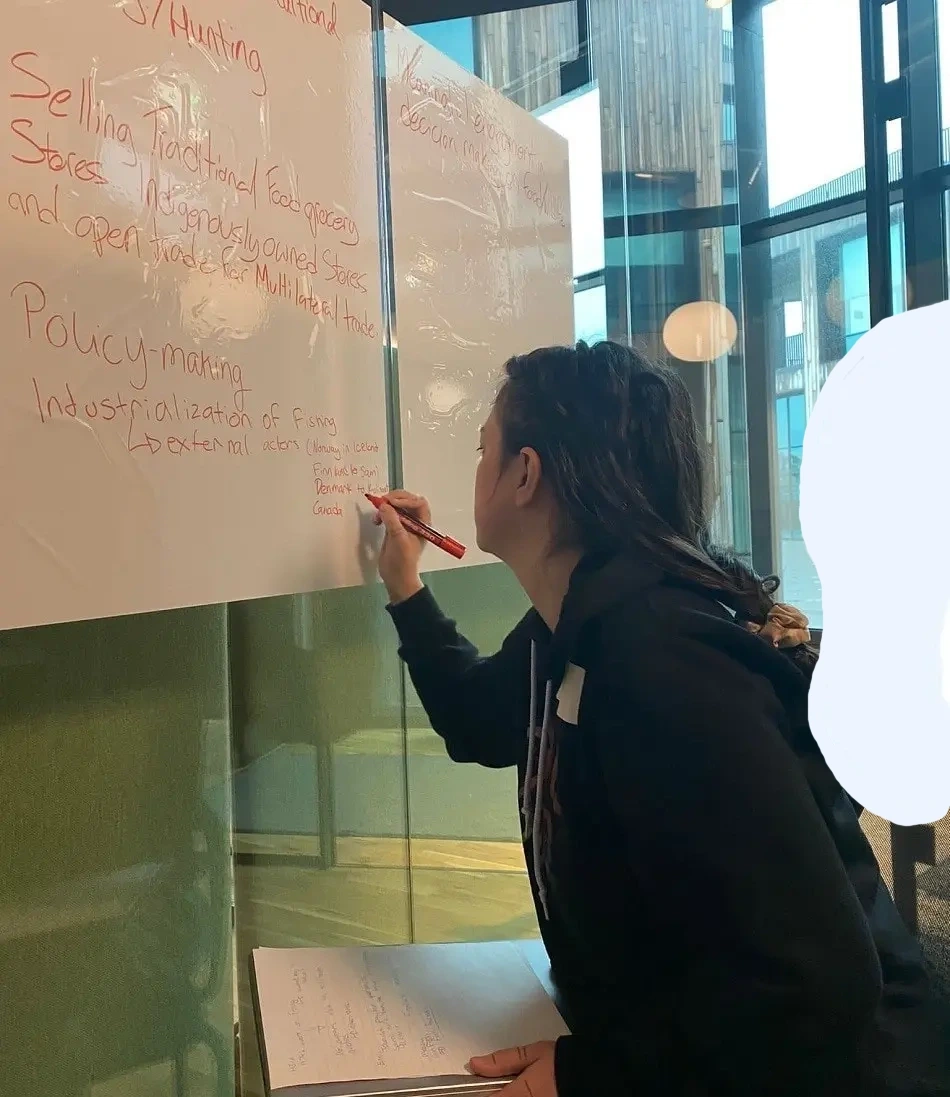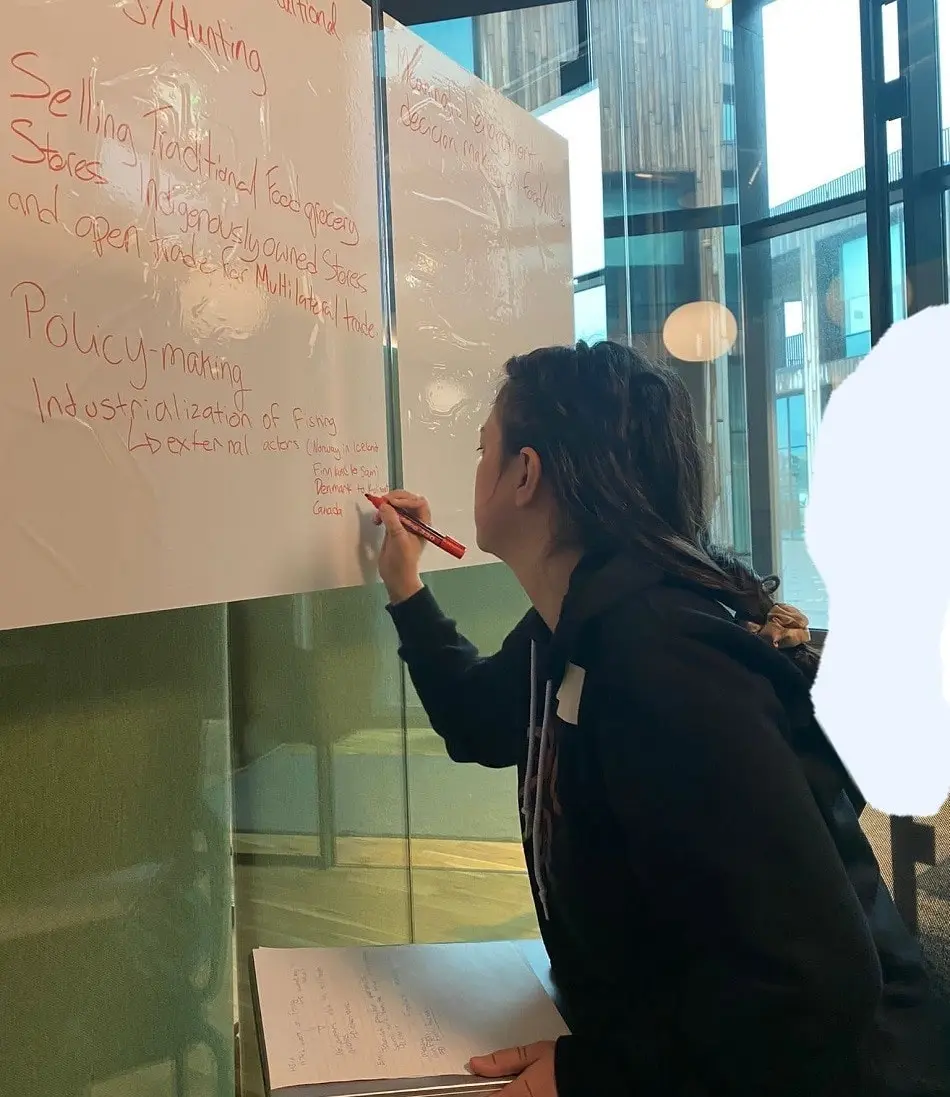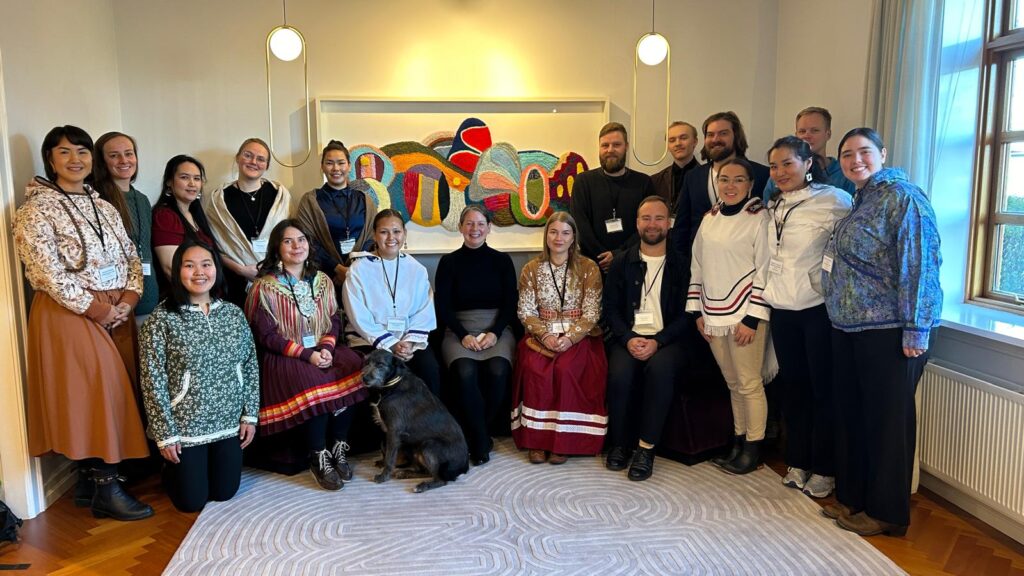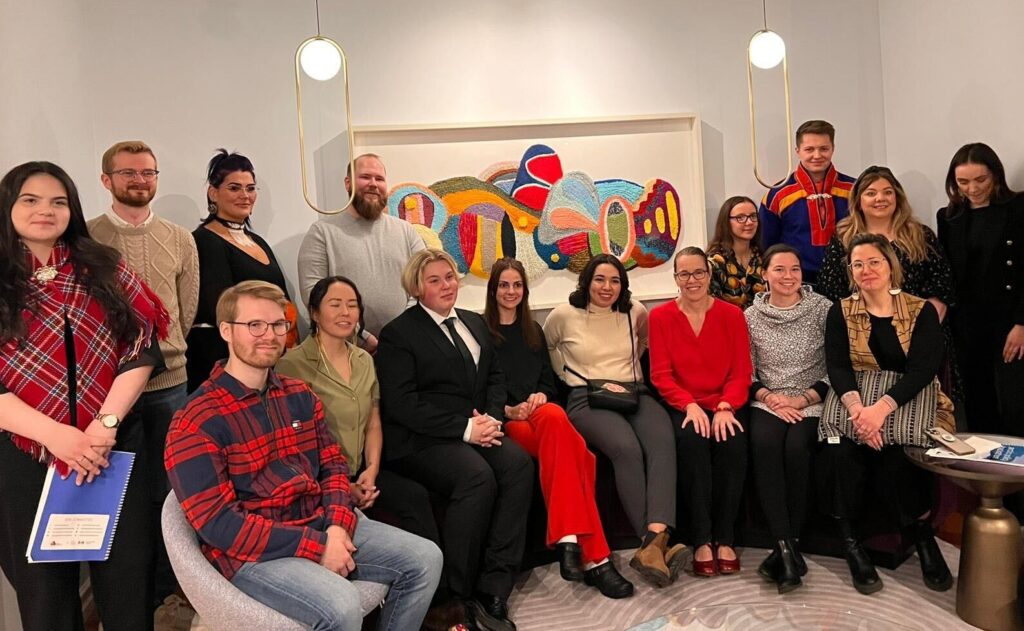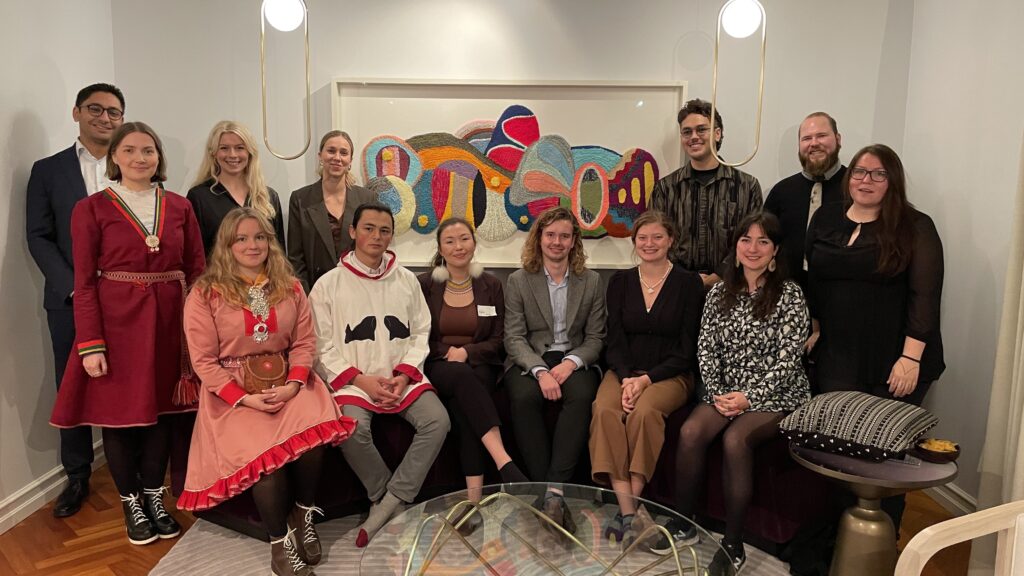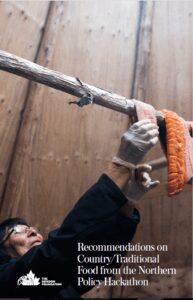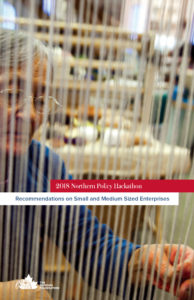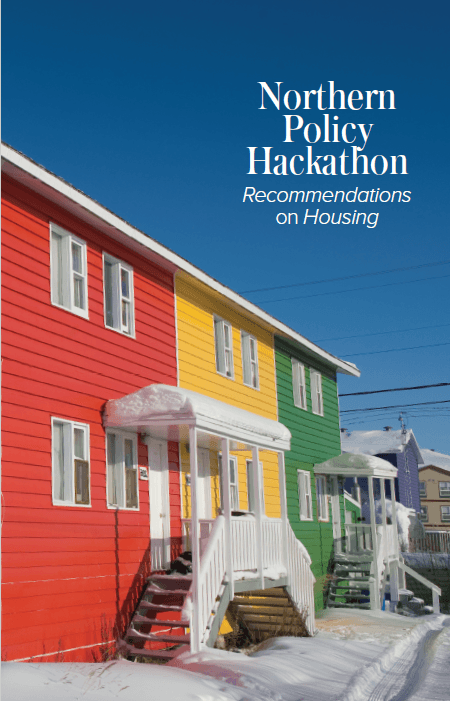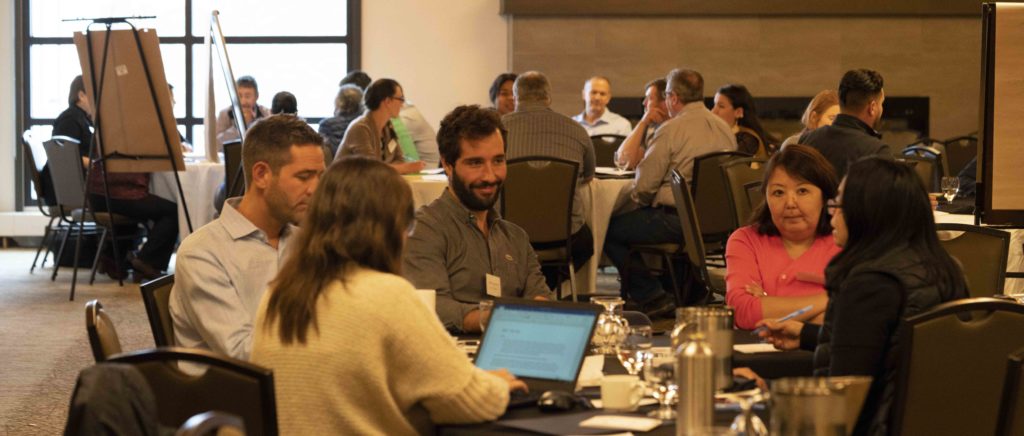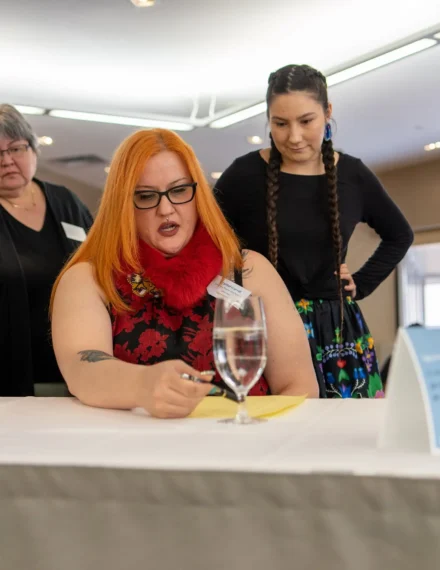Policy Hackathons bring people together to discuss a specific policy issue and create tangible solutions informed by their lived experience.
Over several intensive days, Policy Hackathon participants challenge each other, discuss new ideas, and create policy recommendations to be shared with key stakeholders.
Emerging leaders learn about the policy development process and the impact they can make by drawing on the value of their lived experience.
Participants see how valuable their perspective is and that they can make change happen. They build policy skills; expand their networks, and explore a new model for policy development to take back to their communities and organizations.
The Foundation has run three Northern Policy Hackathons and two Arctic Policy Hackathon, bringing together new leaders from across Canada’s North and the circumpolar north respectively.
The third Arctic Policy Hackathon, October 2024
The third Arctic Policy Hackathon, organized in partnership with the Arctic Mayors’ Forum, took place in October 2024 in Reykjavík, Iceland.
16 young leaders from six circumpolar countries produced policy recommendations addressing the topic Sharing the Future: A Sustainable Future for Arctic Tourism. The recommendations were shared at the subsequent Arctic Circle Assembly.
The second Arctic Policy Hackathon, October 2023
The second Arctic Policy Hackathon took place in October 2023 in Reykjavik. Organized by The Gordon Foundation, the Canadian International Arctic Centre, and the Arctic Mayors’ Forum, the hackathon is taking place ahead of the 2023 Arctic Circle Assembly.
The hackathon bought together new leaders to address the topic of The Future of the Arctic: Keeping Next Generation Leaders in the Arctic.
Read the policy recommendations.
The First Arctic Policy Hackathon, October 2022
In partnership with the Canadian International Arctic Centre and the Arctic Mayors’ Forum, The Gordon Foundation ran the first Arctic Policy Hackathon (APH) in Reykjavik, Iceland in October 2022. Emerging leaders from across the circumpolar North developed policy recommendations addressing food sovereignty in the Arctic.
Young leaders from Arctic Indigenous and local communities in northern Canada, Greenland, Sápmi, Finland, Iceland, Sweden, and Alaska came together to exchange ideas, challenge each other, and create solutions over two days of intense discussions. Their work resulted in several creative policy recommendations that participants took back to their home communities.
Following the APH, the policy recommendations were presented by hackathon participants Patricia Johnson-Castle and Harmony Wayner at the 2022 Arctic Circle Assembly. Bringing the policy recommendations to the Arctic Circle Assembly allowed Arctic states and stakeholders to engage with the next generation, bring new voices to the forefront, and listen to cutting edge policy recommendations on a crucial issue.
Since the hackathon, participant Nolan Qamanirq has appeared at the Arctic Frontiers conference, sharing his perspective on how climate change is the biggest threat to food security, and the 2023 Land Claims Agreements Coalition conference, where he talked about getting young people interested in taking up hunting and accessing local foods.
The Foundation has hosted three Northern Policy Hackathons:
The Northern Policy Hackathon Toolkit.
Based on our experience of carrying out three Northern Policy Hackathons we have developed and tested a Northern Policy Hackathon Toolkit. We know that people are looking for innovative ways to contribute to policy discussions online, so the toolkit includes ideas on adapting policy hackathons to take place online.
What are Hackathons?
Hackathons are intensive events – typically lasting several days – during which people meet to engage in collaborative problem-solving. Traditionally, hackathons refer to computer programmers gathering to develop leading-edge software. This model has proven very effective in driving innovative solutions, and has now been adapted by governments, non-profit organizations, universities, and crown-corporations.
What makes Policy Hackathons different from a regular policy conference or workshop is the focus on generating concrete, actionable outcomes developed by people with lived experience.
2024 Arctic Policy Hackathon Recommendations"Together we built these recommendations on our shared youth perspective of a sustainable stewardship model which includes the 4 R’s of respect, reciprocity, responsibility, and redistribution of our food resources."
Hackathon resources
-
First Arctic Policy Hackathon Policy Recommendations
Innovative Policy Recommendations written by hackathon participants
-
First Arctic Policy Hackathon Addresses Food Sovereignty
-
Hackathons and treaty simulations: Building young Northern and Indigenous leaders’ policy muscle
-
The Northern Policy Hackathon Toolkit
-
Hackathons: How to Enhance Citizens’ Contribution to Policy In-Person and Online
-
Recommendations on Northern Housing
-
Background Research on Northern Housing
-
Recommendations on Small and Medium Sized Enterprises
-
Background Research on Small and Medium Sized Enterprises
-
Background Research Summary on Small and Medium Sized Enterprises
-
Recommendations on Country/Traditional Food
-
Background Research Summaries on Country/Traditional Food
-
Hackathon on food security held in Nain
